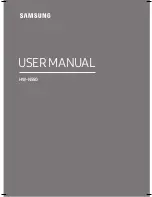
Page 6
Arc rays
——May injure the eyes and burn the skin.
Welding arc rays from all welding processes produce intense, visible and
invisible (ultraviolet and infrared) rays that can burn eyes and skin.
·Wear an approved welding helmet fitted with an appropriate shade of filter lens
to protect your face and eyes when welding or watching.
·Wear approved safety glasses with side shields under your helmet.
·Never use broken or faulty welding helmets.
·Always ensure there are adequate protective screens or barriers to protect
others from flash, glare and sparks from the welding area.
·Ensure that there are adequate warnings that welding or cutting is taking place.
·Wear suitable protective flame resistant clothing, gloves and footwear.
Precautions against fire and explosion
Avoid causing fires due to sparks and hot waste or molten metal.
Ensure that appropriate fire safety devices are available near the welding and
cutting area.
Remove all flammable and combustible materials from the welding, cutting and
surrounding areas.
Do not weld or cut fuel and lubricant containers, even if empty. These must be
carefully cleaned before they can be welded or cut.
Always allow the welded or cut material to cool before touching it or placing it in
contact with combustible or flammable material.
Do not work in atmospheres with high concentrations of combustible fumes,
flammable gases and dust.
Always check the work area half an hour after cutting to make sure that no fires
have begun.
Take care to avoid accidental contact of electrode to metal objects. This could
cause arcs, explosion, overheating or fire.
Risks due to hot material
·
The welding process will create hot metal, sparks and drips of molten metal, so
it's very important to ensure the
operator is equipped with full PPE and to always ensure there are adequate
protective screens or barriers to protect others from flash, glare and sparks from
the welding area. Hot surfaces will create fires and will burn any exposed skin.
Always protect your eyes and body. Use the correct welding screen and filter
lens and wear full PPE protective clothing.
Do not touch any hot surfaces or parts bare handed.
Always allow hot surfaces and parts to cool down first before touching or moving.
If you are required to move hot parts, ensure you use proper tools and insulated
welding gloves (PPE) to prevent burns to your hands and arms.
Noise
——Excessive noise may be harmful to hearing
·Protect your ears by ear shields or other hearing protectors.
·Give warning to nearby personnel that noise may be potentially
hazardous to hearing.
Summary of Contents for TIG200
Page 53: ...Page 53 Appendix 3 List of common spare parts...
Page 56: ...Page 56...
Page 59: ...Page 59...







































